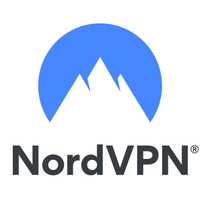Everything you need to know about choosing your new VPN
Having a VPN helps to make you more anonymous online, encrypts your internet use and lets you effectively trick your laptop or mobile device into thinking it’s in another location entirely.
And it’s the versatility of the best VPNs that have made them such a game-changing bit of kit for laptops, desktops, tablets, smartphones, streaming devices, smart TVs – even games consoles.
If you’re already in the know about what VPNs are and so, this is the place to discover mini reviews of the best VPNs in 2021 following our most recent round of in-depth testing…
2021’s best VPN services

1. ExpressVPN
ExpressVPN once again took top honors in our latest VPN testing in November 2021. The complete package, it offers fast speeds, security smarts, supreme ease-of-use, 24/7 customer support, and even free cloud backup. It’s the best VPN around and you can try it for 30-days risk-free.

2. NordVPN
With smooth server speeds, extra privacy perks like ‘Double VPN’ encryption, and independently audited no-log policy, NordVPN is very close runner-up. It’s jam-packed with features, and, despite the quality on offer, the pricing gets really reasonable if you sign up for a multi-year plan.

3. Surfshark
It may not have the same server variety or reliable speeds as the two VPN services above, but Surfshark is still full of features and excellent at unblocking restricted apps and services. Plus, at around $2.50 USD/£2/$AU3.50 per month it’s a fantastically priced option that’s a doddle to use.
4. Private Internet Access
A strong all-round VPN that keeps on improving
The reason PIA keeps climbing in our rankings of the top VPNs is because it continues to improve. Since our last round of testing, it has added SmartDNS to its features list – another string to its bow in helping you watch region-restricted content.
Speaking frankly, PIA isn’t currently close to appearing on our list of the fastest VPNs. It isn’t the slowest around and won’t significantly hold you up for most ‘normal’ web activity. But for gamers looking for an edge, streamers who hate the merest hint of buffering and torrenters not wanting to hang around, maybe you should go from one of the better/faster options on this list.
But PIA still does plenty to stand out from the crowd and the pricing beats a lot of the competition – often throwing in free extra months or additional security licences when you sign up for more than a year.TODAY’S BEST PRIVATE INTERNET ACCESS DEALS+ 3 MONTHS FREEPrivate Internet Access VPN 3 Year$2.03/mthVIEWPrivate Internet Access 1 Year$3.33/mthVIEWPrivate Internet Access VPN Monthly$11.95/mthVIEW
5. ProtonVPN
Of all the VPNs we reviewed in our latest tests, ProtonVPN is the one that improved most noticeably and is deserving of its place within our five top VPN services.
Over the last months and years, Proton has been a VPN provider on a mission. Its server network has shot from a few hundred to nearly 2,000 (still less than most, but heading in the right direction) and it has made notable improvements to its clients and apps, adding new features and support.
The most significant of those in 2021 was WireGuard, which has now been fully rolled out. That bodes well for Proton’s future proofing. But even if it hadn’t, our speed testing witnessed some of the most eye-catching OpenVPN speeds around. In short, you don’t have to worry about waiting to be connected if you’re in a hurry to turn on ProtonVPN, and then afterwards you can just leave it working in the background knowing it won’t slow down your internet connection.
Proton has really improved its streaming skills, too, becoming a reliable provider for getting around geo-restrictions when you’re abroad. It breezed past BBC iPlayer, aces Amazon Prime Video and netted us access to foreign Netflix catalogs without much trouble at all – that’s in a year where more reputable providers (ahem, NordVPN) have encountered problems. Although it should be noted that this is only the case if you have a Plus subscription – you won’t get this kind of quality from its free or Basic tiers.
The very fact that Proton is based in Switzerland, instantly makes you just feel safer. And that’s only enhanced by terrific kill switches, the opportunity to pay by Bitcoin and solid P2P support for torrenting.
So ProtonVPN isn’t perfect, but it is on the rise and challenging the top of our VPN podium. It still doesn’t have that many servers or locations, and it’s quite expensive if you need all the features we’ve described here (though a basic plan costs less than $5 a month). This is a powerful and trustworthy service, though, and if that’s your top priority, we’d recommend you take a look.TODAY’S BEST PROTONVPN DEALSBEST VALUE PLANProtonVPN Plus 2 year$4.99/mthVIEWEND OF YEAR SPECIALProtonVPN Plus 1 year$5.99/mthVIEWProtonVPN Basic 2 year$3.29/mthVIEW
What is a VPN?
Short for Virtual Private Network, VPNs are a program or app that allow you to use the internet via secure, encrypted tunnels. So for many, getting a VPN service will be all about privacy – you may want to use them to help keep your online life completely anonymous from prying eyes of your ISP (handy for keen torrenters) or even your government.
But because the best VPNs also let you change your IP address to one in a completely different city or country, these services have taken on a much wider use. VPNs are fantastic for streamers, for example, who want to have access to a whole world of shows and films, or want to watch a sporting event somewhere you ordinarily can’t.
While if you’re on holiday and find your favorite app is banned (think about some of the internet censorship in Cuba, Turkey, China – even Canada), an online VPN will let you use the internet in the way you’ve become accustomed.
Below you’ll find handy VPN reviews of all the best services on the market – with services like Netflix and states such as Russia getting increasingly aggressive against VPNs, it’s imperative to know which provider is strongest. While further down the page there’s stacks more information about the software.
How do VPNs work?
A VPN is designed to make using the internet safer, more private and more convenient, and it does that by creating a secure connection between you and the site or service you want to access. All traffic between you and the site or service is encrypted, so it’s meaningless to anyone else.
To make this happen, a VPN takes your internet traffic and reroutes it through its own servers – so instead of going like this:
Your device —> The website
And back again like this:
The website —> Your device
It goes like this:
Your device —> Secure VPN servers —> The website
And back again like this:
The website —> Secure VPN servers —> Your device
That doesn’t just improve security – although that’s the main reason for doing it – it also disguises where you are. Your computer, smartphone, tablet or games console might be in London, but as far as the website is concerned you could be connecting from New York, or from Mumbai, or from Naples.
That means VPNs can also protect your privacy and get round “geo-blocking”, which is when a site uses your location information to decide whether or not it’s going to let you see or hear something.
You can explore the inner machinations of this software further in our full guide: “How does a VPN work?“.
Why do I need a VPN?
There are lots of reasons why you might need a VPN. One of the most important ones is data security, especially when you’re out and about. How often have you connected to a Wi-Fi hotspot somewhere public, such as in a bus terminal, train station, café or airport? Wi-Fi hotspots aren’t particularly secure things, but with a VPN you can be confident that nobody’s eavesdropping when you do your online banking or send the boss your top secret world domination plans.
A VPN protects you from fake hotspots, which are convincing-looking Wi-Fi hotspots designed to steal people’s data and/or personal information. Even if you connect, your data can’t be intercepted.
VPNs can also protect your privacy by disguising your location. For some of us that means it prevents those ubiquitous trackers from following us around the internet, and it enables us to get past geoblocking when we travel – handy if you want to catch up on that box set but aren’t in the same country as your subscription. But for others it’s life-saving, because it evades censorship and government monitoring of communications. A VPN makes it much harder to identify the source of an upload, or what websites a person might have visited.
Should I pay for a VPN?
Some companies now offer a basic service that won’t cost you anything at all. So, are free VPN services as good as their paid-for counterparts then?
In short… no. As you’d expect, there are catches, and they typically start with a data cap. TunnelBear VPN’s free plan limits you to 500MB a month, for example.
Free products also typically have usage restrictions. Most companies don’t want you to soak up all their bandwidth on torrents, so ZPN is typical in blocking P2P. Then there’s the adverts and the session limits and the general lack of service level agreement: free means that it doesn’t come with any implicit warranties.
Free plans are fine for simple needs, then – maybe protecting your laptop’s wireless hotspot traffic on the occasional trip – but if you’re looking for anything more advanced, a commercial product is best.
When is the best time to buy a VPN?
For most products like laptops, smartphones, mattresses and more, we’d usually suggest you wait until Black Friday deals or other sales events hit. And while the top VPN providers are starting to get the hang of these sales seasons, there are pretty much constantly some excellent VPN deals to be had across the entire year – so don’t feel like you have to wait.
How do I get a VPN?
Thankfully, downloading and installing your new VPN is much easier than trying to understand the ins and outs of how they worku0021 All of the best VPNs listed above make it really quick to get started on desktop or, if you’re on mobile, then you could go to the App Store or Play Store and download them there, instead.
Usually, the prices are quoted in their effective monthly cost, but note that you will need to pay the full amount upfront.
Once installed, you can then get extensions added to your chosen web browser, and go about adding functionality to your various devices. That includes your computer and mobile phone of course, but also your games console, tablet, TV streaming devices – even your internet router.
Are VPNs legal?
VPNs are legal in most of the world, but some countries have either banned VPNs altogether or put very severe restrictions on their use. Those bans are more relevant to the people that live there than to people who travel there: we’re not aware of any tourists being thrown in the clink for running a VPN to secure their hotel Wi-Fi, but clearly it’s wise to be careful in more repressive regimes.
In countries that do restrict VPN use there’s often a distinction between approved and unapproved ones. For example, in China VPNs must be approved by the Chinese government, which suggests that they’re the last things you should rely on to hide your activities from the Chinese government. If you use an unapproved one, you can be fined heavily.
In the United Arab Emirates, you can be fined over half a million dollars and/or thrown in jail for using any VPN. It’s a similar story in Russia, while in Iran use of an unapproved VPN can put you in prison. In Uganda, ISPs block all VPN services, Oman bans unapproved ones and Iraq, Belarus and Turkmenistan ban all VPNs. So does North Korea.
^ Back to topVPNs can be used across pretty much all your devices (Image credit: ExpressVPN)
How to choose your VPN
There are several factors to consider when you’re choosing a paid VPN. Here are six tips.
1. Does the plan have servers in every country and region you need? Having more than one server in a country can help spread the load, but doesn’t guarantee improved performance, so don’t assume a plan with 6,000 servers will automatically beat another with 1,000.
2. Check the number of simultaneous connections supported. Five is the bear minimum you should accept, which allows you to have PCs, mobile and tablet connected at the same time. But beware, many companies say this is for a single user only, and they all have fair usage policies to prevent people hogging resources. If you let the entire family download and stream videos separately then you’ll run into trouble.
3. Some providers list the connection protocols they use. OpenVPN and IKeV2 are good choices, fast and secure. You might see SSTP and the older PPTP, as well as protocol options (TCP or UDP for OpenVPN). You don’t need to understand the low-level details, but having the extra choice can help the service make faster and/or more reliable connections.
4. All VPN companies say they don’t log whatever you’re doing online, but inevitably they collect a little data. Some services record the day your account logged on, the amount of data you used, and delete anything else when the session closes. Others add items like your incoming IP address and the server you used, and keep the data for months, even years. If you’re concerned, check the Privacy Policy and Terms of Service to find out more.
5. It’s important to consider the client, the software which handles your connections. These all have a list of servers and a Connect/ Disconnect button, but could you use more? Some clients display server load and ping time in the interface, helping you choose the right server. Regular users might appreciate a “Favorites” system to save and recall specific servers. If you know what you’re doing, having access to low-level network settings will help you tune the whole system.
6. Finally, there’s the price. Beware of apparently cheap deals: these may have restricted features, exclude taxes, be discounted for the first billing period only, and renew automatically, so that apparent one-off £3.99 might become almost £10 next month. Look for a ‘Pricing’ link, read the small print, and if possible use something like PayPal where it’s easy to check and cancel a subscription yourself.
Once you’ve found what looks like your top VPN candidate, be sure to take it for a trial before you spend any big money. But a VPN free trial can only tell you so much, so once that’s expired, pay for a month, run as many tests as you can, then upgrade to a better value plan (usually yearly) if you’re still happy.
VPN services and what you can use them for
If there’s one worry when it comes to using technology and the internet, it’s privacy. By using a VPN, you can, in theory, prevent your internet service provider (ISP) and government from seeing your internet history.
VPNs have also emerged as a popular tool in the freedom of speech movement. You’re able to avoid censorship within organisations (check out our best China VPN page, for more information on that) and from third-parties. For example, if you have a view that goes against the priorities of your employer, you don’t have to worry about them finding out.
People also use VPN technology to “geo-spoof” their location. This results in users customising their location settings to be able to use overseas services. A great example of this is watching a TV programme or online product that’s only available in a specific country, perhaps due to legal or licensing issues – that’s why using a VPN for Netflix has become so popular.
You can resort to a VPN to protect yourself from hackers too. If you’re outside and sign up to use a public internet hotspot – perhaps in a cafe or library – there is the chance someone could try to break into your device. This can lead to you losing valuable data, such as passwords.
This technology is also emerging as a popular force in the world of business. When you’re traveling around for meetings all the time, it’s normal to connect to third-party networks. With a VPN, you can access your firm’s intranet without the worry of being targeted by cyber criminals.
Many VPN services – there are about 400 of them on mobile and desktop – offer different pros and cons, so if you’re looking to access Hulu or BBC iPlayer from a different region, dial into your office network or simply stay safe and secure online, you’ll find a service tailored precisely to your needs.
Furthermore, a VPN can be used to avoid having your internet connection throttled, and that’s certainly relevant at the moment given what Verizon is up to over in the States. According to reports, the ISP has capped Netflix streaming at 10Mb, and also throttled video on its unlimited plans meaning that smartphone viewers can’t achieve a better quality than 480p.
It’s also interesting to note that while phishing remains a major danger online, a VPN can help protect you against malware or con tricks when web browsing.
VPN services: what they can let you watch
As well as keeping you safe and sound while browsing the web, VPN services are also handy for catching your favorite TV shows and live sports while you’re out of the country. If you’ve ever tried to stream something on your tablet or laptop while on holiday only be told that rights restrictions mean you can’t, then this is for youu0021 Changing your IP address to a server in your homeland will get around the problem.
We’ve produced individual guides on how to watch certain shows and events with a VPN – here are just a few of them:
- Navigate the tricky route of how to watch NFL live streams
- More of a b-ball fan? Then beat the blackouts with an NBA live stream
- The EPL is back and you can watch Premier League live streams anywhere
- Elite European soccer: see how to live stream Champions League
- Smell the tyres and petrol – watch an F1 live stream
- Grapple fan? Discover how to watch UFC live streams around the world
- Cricket your thing? Then you won’t want to miss an Ashes live stream
- Catch the hottest TV ticket in town with our guide to watch Yellowstone
- Keep up with the Roy family – discover how to watch Succession
- See all the emergency room drama – how to watch Grey’s Anatomy
How we test VPN services
When we test these services for our VPN reviews, we’re looking for features, value, and clear and honest pricing. Free ways to learn more about a service – free plans, trial periods, refund periods – are important, and we also looked for companies which maintain your privacy when you sign up (no email address required, trials available without credit cards, Bitcoin available as a payment option).
The official product pages never tell you everything you need to know, so head off to the Privacy Policy and Terms and Conditions pages to find the real details. Does the company log more data than you’d expect, or keep it for a long time? When might it share information with others? Are there any restrictions on who can sign up? (Some providers say you must be 18 or over, or that the service is for personal, non-commercial use only.) Any other catches?
VPN performance is difficult to measure as there are so many variables, but we used multiple techniques to try and get a feel for each service’s abilities. We use speed test tools to measure the latency, upload and download speeds for a distant connection (typically UK to US), repeated the test immediately with the VPN turned off, and looked at any changes. We follow this up with a much shorter connection (such as UK to Netherlands) to see a more typical peak performance.
VPNs will always give you a new IP address, but some services may have DNS or other leaks which give clues about your identity. We visited IPLeak.net and other privacy sites to look for problems.
In terms of the client and interface, we’re looking for top VPN server selection tools (by country, region, server, speed, with filters, a Favorites system, perhaps with server load or ping time displayed), with plenty of configuration options, but also a client which stays out of the way until it’s needed.
Finally, we weigh up these individual factors, came up with an overall score, and narrow these down to the best VPNs around.



